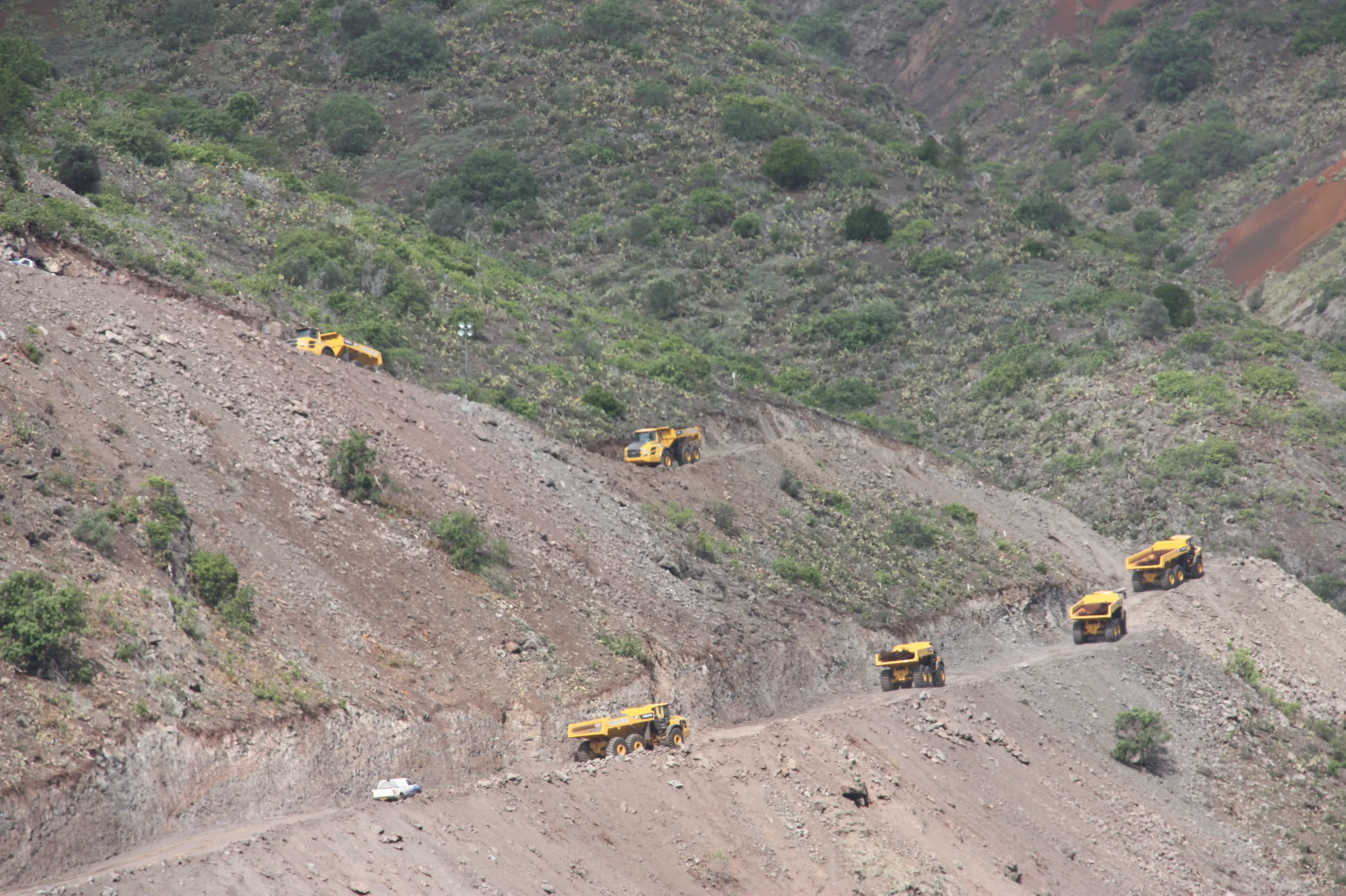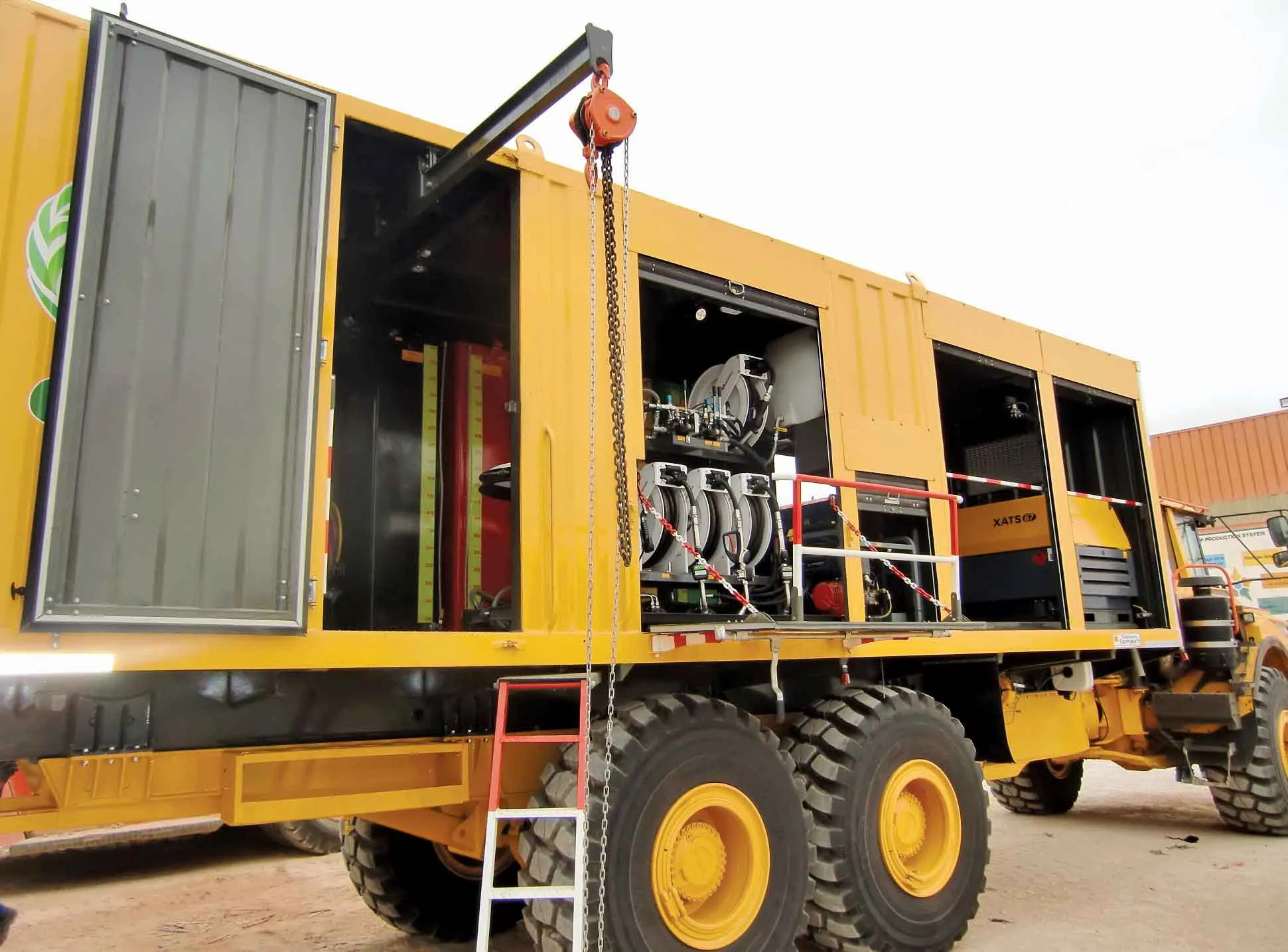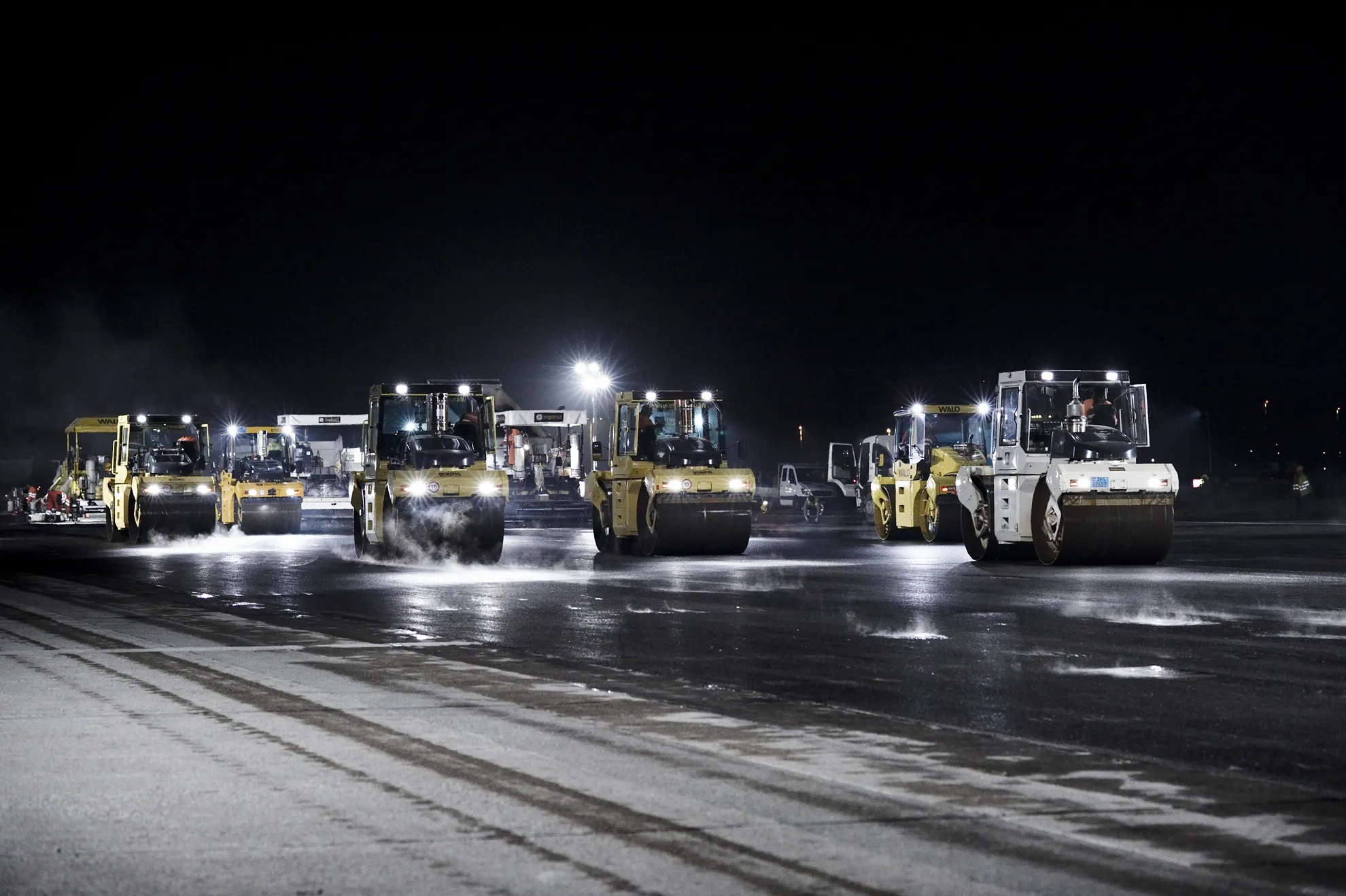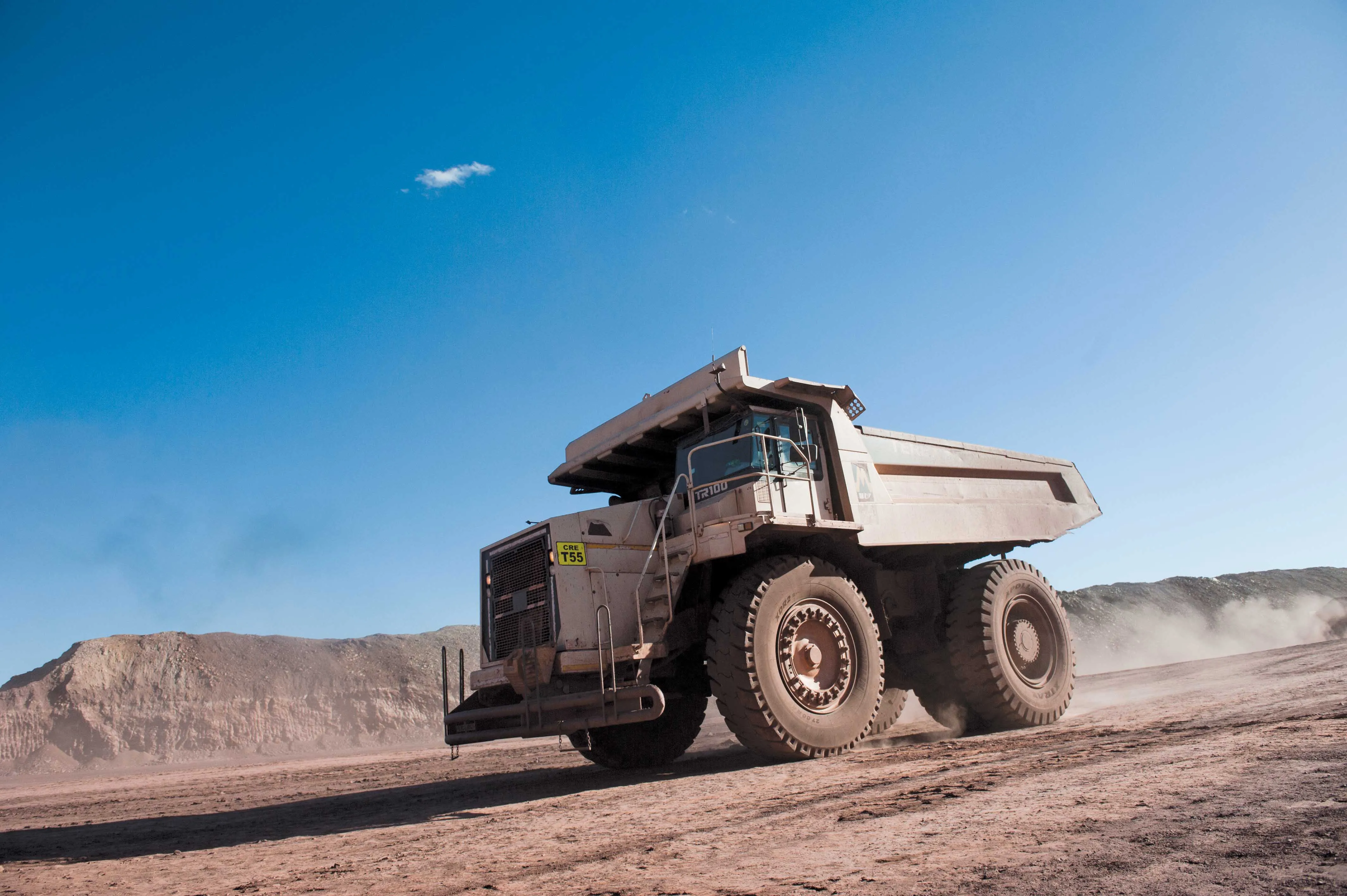The remote South Atlantic island of Saint Helena will shortly benefit from the construction of a new airport as well as access roads and supporting infrastructure. This is the biggest construction project in the history of the island, which lies nearly 2,000km off the coast of Africa.
The airport is expected to boost economic development for the island’s 4,000 residents with an estimated 20,000 people a year forecasted to visit this highly remote, 122km2 equatorial volcanic outcrop. At present the islan
August 29, 2013
Read time: 3 mins

RSS4872 Royal Mail vessel that makes the trip from South Africa once every three weeks.
The project’s client is St Helena’s Government and the work is being funded by the UK’s3915 Department for International Development (DfID) with the two phases of the project valued at US$371 million. The airport is being constructed on an arid part of the island, the Prosperous Plain, on the north-eastern coast. Phase One will see the construction of the airport and supporting infrastructure, including a 14km-long connecting road to the capital of Jamestown. Phase Two will see the operation of the airport for a period of 10 years, commencing in February 2016.
Construction firm Basil Read is carrying out the work and began by building a temporary rock and concrete jetty in Rupert’s Bay on the North of the island, with mooring points positioned in the bay to allow materials to be off-loaded. The jetty is capable of accommodating the NP Glory 4, Basil Read’s chartered 1,530tonne, the first ocean-going vessel ever to voluntarily touch the island.
The first machine to drive onto St Helena was a Volvo G940B grader followed by Volvo’s 70tonne EC700C excavator and several Volvo articulated haulers, including both the new F-Series A40Fs and an A30E. This fleet joined smaller machines including an EW140C excavator, a BL61B backhoe loader and a DD24 compactor, which had been delivered earlier on the RMS St Helena for preparation work.
Construction workers are carried on the RMS St Helena from Cape Town, a five-day voyage. The contractor moves equipment and materials from Walvis Bay in Namibia on the chartered vessel, an 80m long ocean-going landing-craft fitted with a 40tonne derrick crane and modified to carry one million litres of fuel, plus 1,000tonnes of cargo.
Once complete the concrete runway will be 1,950m long and the terminal building, air traffic tower and fire station will cover an area of some 2,500m2. The contractor is now using four EC700DL excavators, 20 A40F haulers, four A30E hauler-based container carriers, two G940 graders, six A30Es converted to water trucks, two A30E haulers, an EC360B excavator with breaker, a EW140C excavator, four SD200X compactors, a L120F loader and an EC290 excavator.
Each team is using a 70tonne excavator and five 40tonne haulers plus ancillary machines such as graders, dozers and water trucks. At peak times, the teams work six days a week.
Prior to the main equipment being delivered,359 Volvo CE’s independent South African dealer, Babcock, had service personnel, technicians and parts personnel already in place on the island. Volvo is backing up this team with a technical supervisor for the project. A second delivery by the freighter NP Glory 4
landed a further 15 Volvo A40F articulated haulers, three additional Volvo EC700C excavators and three SD200DX single drum soil compactors.RSS
The remote South Atlantic island of Saint Helena will shortly benefit from the construction of a new airport as well as access roads and supporting infrastructure. This is the biggest construction project in the history of the island, which lies nearly 2,000km off the coast of Africa.
The airport is expected to boost economic development for the island’s 4,000 residents with an estimated 20,000 people a year forecasted to visit this highly remote, 122km2 equatorial volcanic outcrop. At present the island’s only regular transport link is through RMS St Helena, an oldThe project’s client is St Helena’s Government and the work is being funded by the UK’s
Construction firm Basil Read is carrying out the work and began by building a temporary rock and concrete jetty in Rupert’s Bay on the North of the island, with mooring points positioned in the bay to allow materials to be off-loaded. The jetty is capable of accommodating the NP Glory 4, Basil Read’s chartered 1,530tonne, the first ocean-going vessel ever to voluntarily touch the island.
The first machine to drive onto St Helena was a Volvo G940B grader followed by Volvo’s 70tonne EC700C excavator and several Volvo articulated haulers, including both the new F-Series A40Fs and an A30E. This fleet joined smaller machines including an EW140C excavator, a BL61B backhoe loader and a DD24 compactor, which had been delivered earlier on the RMS St Helena for preparation work.
Construction workers are carried on the RMS St Helena from Cape Town, a five-day voyage. The contractor moves equipment and materials from Walvis Bay in Namibia on the chartered vessel, an 80m long ocean-going landing-craft fitted with a 40tonne derrick crane and modified to carry one million litres of fuel, plus 1,000tonnes of cargo.
Once complete the concrete runway will be 1,950m long and the terminal building, air traffic tower and fire station will cover an area of some 2,500m2. The contractor is now using four EC700DL excavators, 20 A40F haulers, four A30E hauler-based container carriers, two G940 graders, six A30Es converted to water trucks, two A30E haulers, an EC360B excavator with breaker, a EW140C excavator, four SD200X compactors, a L120F loader and an EC290 excavator.
Each team is using a 70tonne excavator and five 40tonne haulers plus ancillary machines such as graders, dozers and water trucks. At peak times, the teams work six days a week.
Prior to the main equipment being delivered,
landed a further 15 Volvo A40F articulated haulers, three additional Volvo EC700C excavators and three SD200DX single drum soil compactors.RSS








